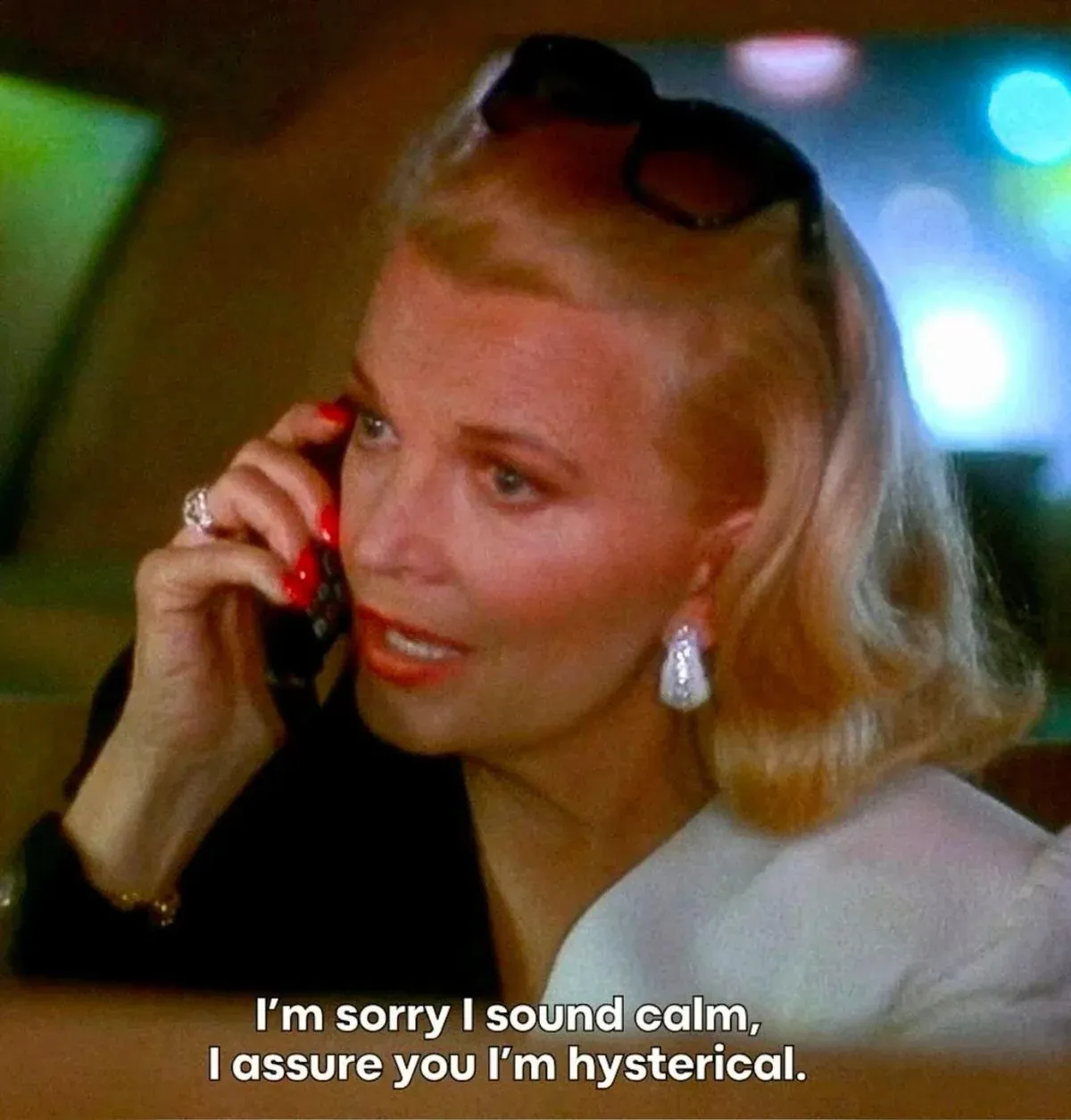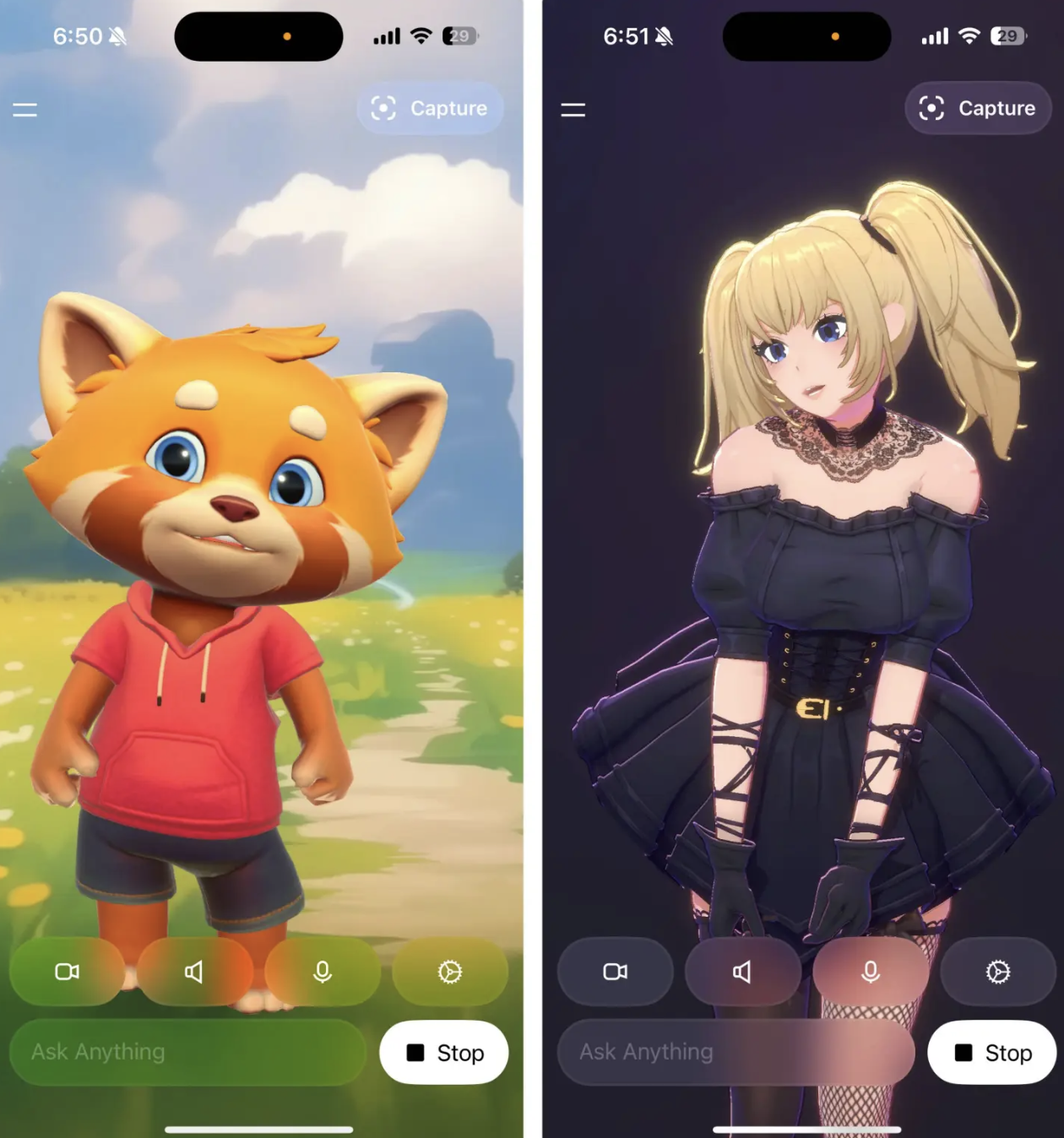Suffer Through It

Since only one person took me up on my offer to wax rhapsodic about the ludicrousness of HBO's The Gilded Age, I will (sadly) turn my attention back to tech. Let's see, what to discuss this week. Oh right. Did you know that Elon Musk's company xAI released two new AI companions on its Grok app, the one responsible for MechaHitler? And did you know that one companion is a basically an anime pornbot while the other is a fun panda who encourages you to go blow up schools, synagogues, and mosques, among other things? Happy Wednesday everyone!
I realize this is not the most important takeaway but: I cannot believe that of all the futures we could have ended up in, we're in one imagined by a grown man with the taste and sensibilities of a 13-year-old dirtbag.

Do you ever think about what companionship is? I think about it a lot, partly because of the work I do, but also because I am often lonely. Loneliness fascinates me in a funny way. It's so powerful and so omnipresent, and we are so convinced it's a problem we can solve. But what if loneliness isn't solvable? What if it just is? And what if, in all our efforts to try and "solve" loneliness, we keep pulling farther away from the thing that might actually help us feel less alone?
As some of you may know, I lived in Sweden for a few years, after I'd spent many years living in California. Sweden is a beautiful place and was an incredible learning experience, difficult and wonderful in equal measure. It is also a lonely place. Swedes can be very lovely people, but they're not outgoing, so finding your place socially takes a lot of work. My poetic description of them is: "They're like winter. They'll thaw when the sun comes out, but you have to be the sun every single time."
One day in late fall, I was walking down my street in Stockholm, where I passed all the usual bars and restaurants. There I was on the cold and windy street all alone, while behind every big glass window sat people dining, drinking, talking, laughing with friends. The inside warmth felt both palpable and unreachable. I let a wave of sadness pass over me and went to wallow in it when something in my brain pulled me up short. "Didn't you feel lonely a lot in California?" I asked myself. "And hadn't you lived there for the better part of 25 years? You've only been here for a little over a year. Maybe give it time. And maybe loneliness is simply a part of you and of how you feel sometimes, no matter what."
Sorry, I said we were going back to tech and instead I'm meandering down garden paths of philosophical musings on the nature of loneliness and human companionship. Bear with me though, I will bring it back around. (I think.)
Anyway. I would like to tell you that this brief and fleeting moment of clarity forever altered the trajectory of my life, and I ascended to a higher plane of acceptance and peace. But you've all met me, so you'd know I was lying. I've still felt regular old lonely plenty of times since then. I've felt sorry for myself. I've gone on social media and used it to convince myself that everyone has friends and no one but me is alone. Sorry, we are all in this stupid human condition together.
I have, however, used that small realization to help me think differently about human connection and all the absurd technological infrastructure we've built around it. A couple of weeks ago, I had an interesting conversation with my mom about my work and writing. We talked about the origins of computing and the internet – not the technical aspects or the military history (and present), but about the driving force of automation itself. Why did humans want to automate? For profit, power, and control, of course. Those were the drivers of automation then and they remain the drivers of automation now, regardless of whatever shiny facade the tech industry has presented.
Of course, few people could have imagined our modern world when automation began, if only because they would probably have envisioned a gleaming futuristic paradise rather than this grubby wet dream of stunted adolescence we find ourselves in. Either way, profit, power, and control are still very much a concern. Which makes you wonder what happens to us as communication and companionship become more and more automated.
Speaking of, Google also released a new AI tool this week. It's much less insane-sounding in comparison to the xAI companions. I mean, it would have to be, because again: anime pornbot and firebombing panda pal. The Google tool seems kind of pedestrian next to these, maybe even useful, certainly harmless, right? This AI tool will contact local businesses for you to get information, such as pricing or availability, so you don't have to call and talk to a human. But if you ask me, I think that's actually scarier and more insidious than whatever dick-pic-meme-turned-social-media-feature Elon's come up with.

I know there's a big anti-talking-on-the-phone movement happening with a lot of people who are millennials or Gen Z or Alpha. I know some people have social anxiety. I don't want to be dismissive, but I also want to say I think we are approaching the true point of no return. You might think I'm being stupid, because who cares if AI calls a business for basic info, it's like looking it up online, same diff. Honestly, maybe that was the point of no return. Maybe social media was. I just think that we cannot on one hand decry the meanness of politics and of social media, the cruelty toward others, the lack of empathy, the sense of entitlement – while on the other hand we can't even be bothered to set aside our discomfort for one moment to acknowledge and be polite to another human being in order to get some basic information from people who are performing non-emergency services for us. Like, the types of businesses available in the first rollout of this product are pet groomers and dry cleaners. This is really what we're building?
Humans, by nature, are social creatures, but we're also selfish, lazy, avoidant, resistant to change, and extremely uninterested in experiencing any kind of unnecessary discomfort. All of that makes being a social creature difficult. Coexistence requires constant practice. Each automation we've embraced has promised an easier, more efficient way to do something – order books, find information, stay connected with friends, feel cared for and understood – but has also asked for payment in kind. We have always paid for it with our data, of course, but I think we were also paying for it by relinquishing some of the things that allow us to be human to one another. Or if not relinquishing it, then certainly allowing those muscles to atrophy as the automation did the work for us.
Companionship is not simply about having your needs met. It's so much more than that. It involves mutual care, comfort, and understanding. It also can involve a willingness to sit with discomfort or to do something you might not want to in order to be kind or supportive to someone else. Sometimes, counterintuitively, there's almost more joy in doing things for another person. That's one thing growing beyond childhood teaches us: The complexity of emotion, of navigating more than simple wants, of not taking the easy way out. It's easy to point and say Elon's a manchild, but can we really do that when we adopt technologies that infantilize us at the expense of others while we claim it's "to save time" and "be more efficient"? Why are we so afraid of any discomfort that we'll tear each other and ourselves apart rather than learn to sit with it for the sake of another person?
I can't say I've experienced the worst sorts of loneliness. I look around New York City and I know that, as lonely as I've felt in my life, there are depths I haven't come close to plumbing. Even so, I've felt invisible. I've been next to someone I love and, even though I could reach out and touch them, I knew they were a million miles away and were never coming back. I've spent a dark winter alone and sick in Sweden. (Well, not alone, but maybe it's not wise to tether your entire wellbeing to a 15-pound cat who will live less than 20 years.) All of this was hard. There was no button I could push that would fix any of it. But that's part of being a human. We can't automate our way out of loneliness. If anything, we automate our way farther and farther into it, and the more we automate these parts of us, the more we give in to the vision big tech has for our lives. They've long been clear about what their end game is. They've already amassed profit, power, and control.
I'm terrified. Aren't you?
Until next Wednesday.
Lx
Leah Reich | Meets Most Newsletter
Join the newsletter to receive the latest updates in your inbox.
